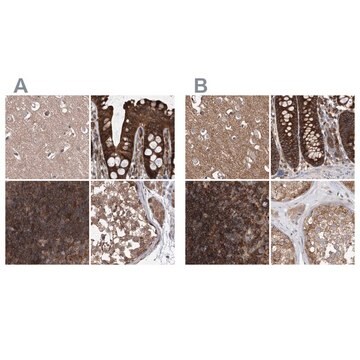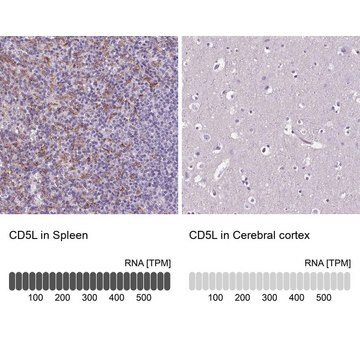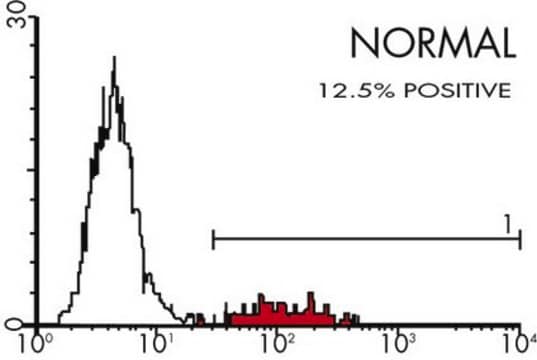SAB4600214
Anti-Mouse IgG (H+L), highly cross-adsorbed, CF™ 770 antibody produced in goat
~2 mg/mL, affinity isolated antibody
About This Item
Productos recomendados
biological source
goat
conjugate
CF™ 770 conjugate
antibody form
affinity isolated antibody
antibody product type
secondary antibodies
clone
polyclonal
form
buffered aqueous solution
species reactivity
mouse
concentration
~2 mg/mL
technique(s)
flow cytometry: 1-10 μg/mL
immunocytochemistry: suitable
immunohistochemistry: suitable
indirect immunofluorescence: 1-10 μg/mL
fluorescence
λex 770 nm; λem 797 nm
shipped in
dry ice
storage temp.
−20°C
target post-translational modification
unmodified
Specificity
Immunogen
Features and Benefits
Physical form
Preparation Note
Legal Information
Disclaimer
¿No encuentra el producto adecuado?
Pruebe nuestro Herramienta de selección de productos.
Storage Class
10 - Combustible liquids
wgk_germany
WGK 2
flash_point_f
Not applicable
flash_point_c
Not applicable
Certificados de análisis (COA)
Busque Certificados de análisis (COA) introduciendo el número de lote del producto. Los números de lote se encuentran en la etiqueta del producto después de las palabras «Lot» o «Batch»
¿Ya tiene este producto?
Encuentre la documentación para los productos que ha comprado recientemente en la Biblioteca de documentos.
Nuestro equipo de científicos tiene experiencia en todas las áreas de investigación: Ciencias de la vida, Ciencia de los materiales, Síntesis química, Cromatografía, Analítica y muchas otras.
Póngase en contacto con el Servicio técnico






